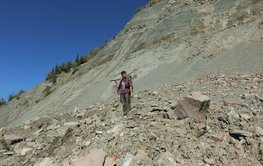Prof Dr Magdalena Scheck-Wenderoth, Director of Department 4 ‘Geosystems’, takes over the Chair of ‘Sedimentary Basins and Georesources’ in a joint appointment with the GFZ.
The German Quaternary Association honoured the former head of the GFZ section ‘Climate Dynamics and Landscape Development’ for his outstanding scientific achievements in Quaternary research.
Sustainable procurement for the RIM2D flood forecasting model wins an award: Computing power can either be driven for economy or speed
In his 6 months’ stay in section 4.7 Earth Surface Process Modelling with Prof Jean Braun, the Earth Scientist from Colorado State University will address how climate affects landscape evolution.
The head of GFZ’s “Projects & International Affairs” has been elected on the 37th World Congress of the “International Union of Geological Sciences” (IUGS) in South Korea by the General Assembly.
On the day of bulding culture, join our guided tours at GeoBioLab: How to investigate microbial processes underground? How can computer power heat laboratories? How does sustainable building work?
The GFZ Friends Award honours Smirnov's dissertation on the dynamics of near-Earth space, completed in GFZ section ‘Space Physics and Space Weather’, as the best doctoral thesis of 2023.
Saturday, 9/14 | 17:30 | Public lecture by GFZ researcher Liane G. Benning at GDNÄ meeting: What algae have to do with the ice melt on Greenland
With the prestigious EU funding of 1.5 million euros, he will conduct research into past ecosystems and the development of the carbon cycle and complex life in the GFZ section “Organic Geochemistry”.
On 2 September, eleven trainees in scientific/technical and commercial fields and two volunteers started their training with an induction day. A warm welcome!


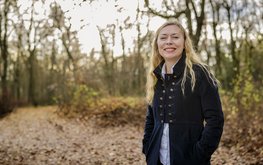
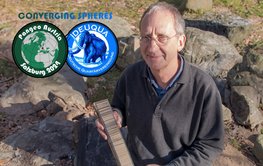

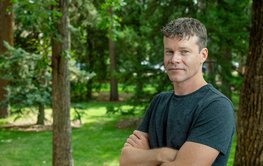


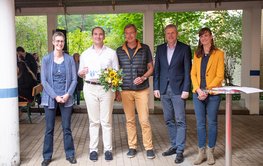
![[Translate to English:] Ice landscape with five red tents](/fileadmin/_processed_/8/9/csm_Zeltlager_auf_dem_Eis_Urheberin_Jenine_McCutcheon_ebb7cd0301.jpeg)
